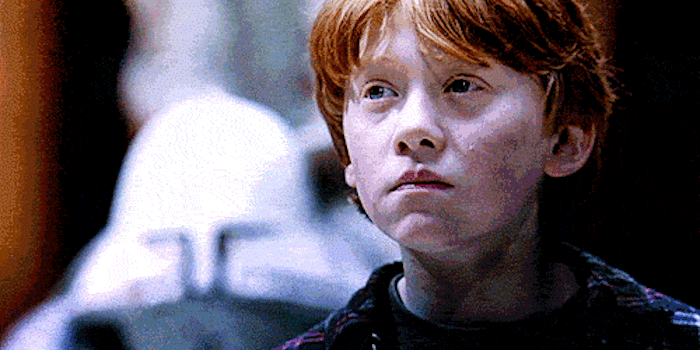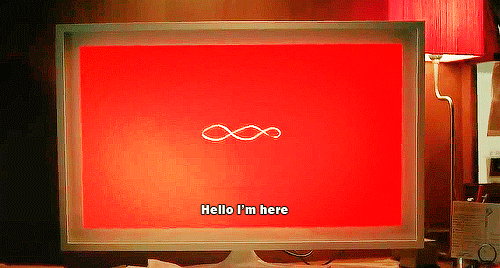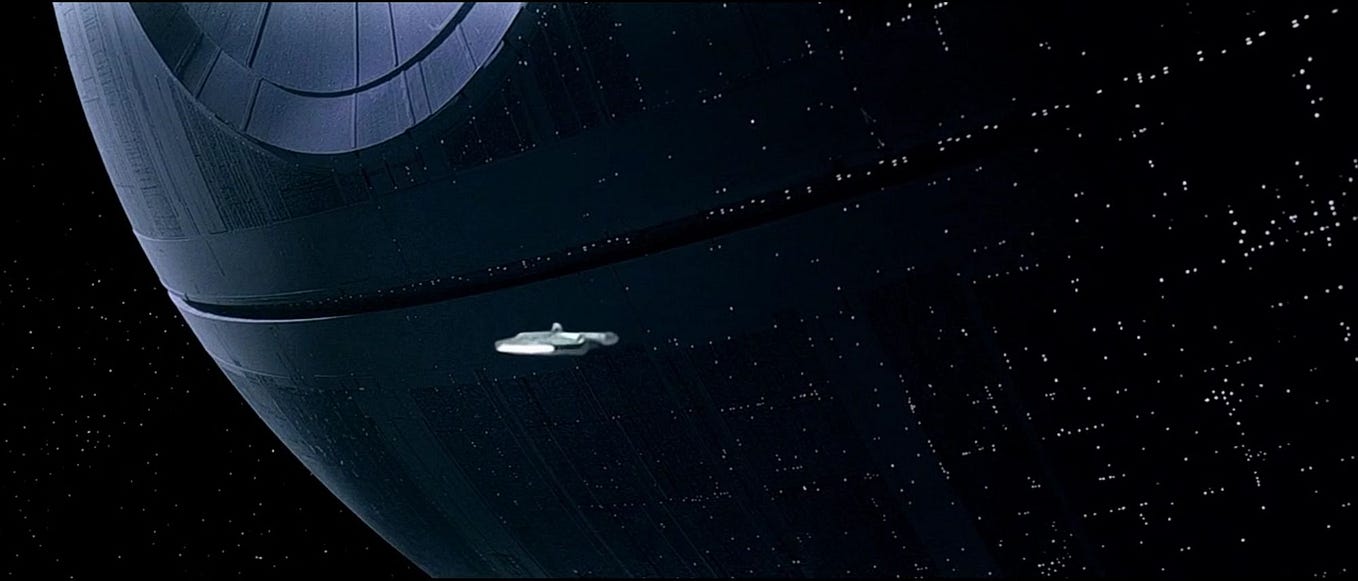Interview: Daniel Stiepleman
My conversation with the screenwriter of the movie On the Basis of Sex.
On New Year’s Eve, my wife and I had a lovely dinner at nearby restaurant, then went to see On the Basis of Sex: “The true story of Ruth Bader Ginsburg, her struggles for equal rights, and the early cases of a historic career that lead to her nomination and confirmation as U.S. Supreme Court Associate Justice.”
We thoroughly enjoyed the movie, thus, I was happy to have the opportunity to speak with its screenwriter Daniel Stiepleman. In our conversation, we focused on writing the screenplay which was named to the 2014 Black List.
Scott Myers: How did you find your way into screenwriting?
Daniel Stiepleman: I went to film school, like so many people. I went to undergraduate at NYU, but I graduated at 21. I had a moment of insight that no 21‑year‑old deserves to have, which was that I had never done anything hard, and I had nothing interesting to say. I turned down my job offer in LA.
I had a couple messages on my answering machine at the time from managers because I had managed to make a little bit of money writing as a student and had a respectable run in the Nicholl Fellowship.
Instead I joined the Peace Corps. While I was there, I met my wife. We were volunteers together. We traveled the world. Then I became a high school English teacher for a little while.
Then, one day when I had to grade my students, I would give them the opportunity to grade me as well. I was reading my grades. I’m going through them A, B, A, B, B, B, A, A, B, and I get one that says D. There was a little note, and it said, “Sorry, Mr. Stiepleman. This is my favorite class, but let’s face it. It’s not like you really teach us anything. All we do is sit around and think about a bunch of stuff we never thought about before,” which is the greatest compliment you could ever give a teacher as far as I’m concerned. [laughs]
I went to the kid and I was like, “No, you’re not in trouble or anything. I just wanted to say it’s the age of the Internet. You can look up the answer to any question. It was a simpler time. We thought the Internet told us the truth.
I said, “So, to me, my job is to help you come up with more interesting questions, and if you’re saying that’s your favorite part of the day, then I feel like I’m doing my job pretty well.” Suddenly it hit me. I was like, “I have a world view!”
[laughter]
I went home to my fiance at the time, and I said, “OK, now I’m ready to start writing,” and this was the movie I wrote.
Scott: On the Basis of Sex. You are the nephew of Supreme Court Justice Ruth Bader Ginsburg.
Daniel: I am a nephew.
Scott: When did you start thinking, “I should try to write a movie about this amazing person who just happens to be my aunt”?
Daniel: First and foremost, it was the marriage. It was the two of them. I thought of it in 2010 at my Uncle Martin’s funeral.
A friend of his got up and gave this beautiful eulogy about the only case Ruth and Marty ever argued together. It was in the context of Marty until the very end of his life literally. The most important thing he’d ever done was hand Ruth that type of support and ban sheet because it allowed her to do the things that she had done.
I thought that was so beautiful. I thought that would make a great movie. Then I thought, “What kind of asshole am I? I’m sitting here at my uncle’s funeral, mining his life for material. That’s not like a thing you’re supposed to do.”
It took me another year to build up the courage to call her and say, “I have this idea. I’d like your permission. I’d love your help.” Then she said, and I quote, “Well, if that’s how you think you want to spend your time.”
Scott: Being intimately close to the material like that, do you think that made it easier for you as a screenwriter to craft the story, or did it present more challenges in some respects?
Daniel: A little bit of both. For me, I know when a script is starting to go well because it stops feeling like I am figuring out what the characters need to say, and it starts feeling like the characters are just saying it, and I’m keeping up with them to get it on the page.
To some degree, the parts where I was writing my own family, that came a little easier because I could intuit them more easily because I literally grew up in the same house as my uncle. I grew up in the same house my mom grew up in. In that regard, it made it a little easier.
What made it more difficult was to give myself the distance from them and to see them the way other characters see them as opposed to the way I see them. That was especially crucial being a man writing a woman because what changes isn’t the way you approach the character. You write every individual as an individual.
What changes, I realized writing a woman, is how every other character responds to them when they talk in a scene.
Scott: In Hollywood there’s a saying, “Never let the facts get in the way of the story.” Were there any facts of substance that you had to change to fit the narrative of your script?
Daniel: The short answer is no. What I did was there were inaccuracies in the script that I would argue make the script much more true, and I’ll give you an example.
One of the things Ruth said to me from the start was she said, “I don’t want people to see this movie and think that I created this area of the law, as if no one before me ever thought, ‘Hey, women should be considered people under the US Constitution.’”
She said, “I built my career on the shoulders of generations of women who came before me like Dorothy Kenyon, like Pauli Murray, and people should know that.” Then it’s up to me to figure out what to do with that now, to somehow dramatize the fact that she is building her career on the ideas of women that came before her.
For instance, a scene that I love. When Ruth meets Dorothy Kenyon for the first time is not an event that actually happened. I would argue that it makes the film more true because, without it, you wouldn’t walk away with that fundamental understanding of what makes Ruth Ruth, which is that she was inspired by women like Dorothy Kenyon.
Scott: That gets into that area of the emotional truth in some respects is even more important than the historical truth.
Daniel: Yeah, or truth versus accuracy, which is something, when I say that to lawyers, it makes their head explode. You’re a writer, so I assume you understand.
Scott: I’ve seen in other interviews where you said you don’t like this traditional cradle to grave biopic. What you’ve done with On the Basis of Sex, it seems to me, is a hybrid between that and what they call snapshot bios where you focus on a specific period of time or incident and use that as a lens through which to interpret a character.
Your movie begins in 1956 when Ruth enters Harvard Law School. A good portion of the script extends to and covers the married life, family life up to I think 1970 when the story switches the focus on this key legal challenge for basically the second half of the film.
My question is, how and when did you come up with that story structure where you’re covering an extensive period of time, but then really focusing on that legal case?
Daniel: What happened was, originally, I thought the whole film would just take place in 1970, ’71. I was digging through Ruth’s files at the Library of Congress from the ’70s. As you do, she had sent early drafts of the brief to other lawyers in soliciting feedback.
One of them had given feedback. If I remember correctly, it was in a postscript. He wrote, “And I can’t believe you’re going up against your own professors from Harvard. That takes great courage.”
I’m like, “Wait. She’s doing what?” [laughs] It felt like such a gift from the screenwriting gods that it wasn’t just the big bad government on the other side, that she had personal stakes in the fact that Dean Griswold went on to become the Solicitor General, that Ernie Brown, her tax professor and Marty’s tax professor went on to work for the DOJ.
I realized I wanted to go back and to try to exploit that. Then realized that, of course I have to go back because the whole point of Ruth’s argument is that the culture has changed. I have to show what the culture used to be like in order to show how the culture has changed.
That first act of the story. One of the challenges of writing this script is because of that opening, it’s an elongated first act.
If you buy into the film school idea that the first act ends when the protagonist accepts the call to action. That doesn’t happen for 38 pages or something. One of the challenges was to make the film feel like it had the pacing of a traditional three act structure while buying myself 10 extra pages to pull that off.
I’m excited to get to talk to you about this because nobody ever asks this question. [laughs] What I did is, right at the point where you would traditionally expect the first act to end, I took the period jump. I took a period jump and a tonal jump. It feels like you’re entering a new phase of the story, but you haven’t even gotten the main thrust of the story going yet.
The reason that works is because Ruth had to wait. She felt like her career should get going now, and then she was told, “No, you don’t get to do this because you’re a woman.” Because Ruth had to wait, we have to wait. It’s an example of how you can use structure to do something emotionally so that when her time actually comes you feel like it’s about damn time.
Scott: That’s a great point because you grounded it in her character, and we’re emotionally connected to her. I tell my students all the time, “It’s always about character. Character drives plot.” You’ve got that unconventional aspect that you were just talking about.
There’s another unconventional aspect to the story in that the relationship between Ruth and her husband, Martin. Typical Hollywood speak, you can’t have good drama without conflict. Yet this is a couple that although they weren’t perfect, they support each other. Did you get any pushback on that from people like, “Hey, we need to have them arguing that Martin’s frustrated at her for suing her professor”?
Daniel: Yeah, absolutely. There were moments where people would be like, “Oh, I would finance this movie. I just don’t buy this Martin Ginsberg character. I don’t believe such a person could exist. I think he should threaten to divorce her if she moves on with the case.” It’s hard to get a movie made. It’s especially hard to get a first movie made.
The first great moral challenge of my screenwriting career was like, “Oh, you can have your first movie. All you have to do is throw your uncle under the bus.” [laughs] Obviously, that was a nonstarter because the marriage is why I wanted to write a movie. My wife and I were so lucky to have Ruth and Martin Ginsberg as role models, and I wanted to show that to other people.
I remember at some point saying in a meeting, “Look, there’s a 5,000‑year history of Western narrative of men coming home from battle and their wives patching them up and sending them back out again. You write one supportive husband, and you’re going to tell me this character couldn’t exist?”
Scott: To me, it’s one of the strengths of the story.
Daniel: I think so too. Luckily, we found participant, we found focus, and we found a director and a cast who all…I should give credit where it’s due. From day one, I had a producer in Robert Cort who believed in that story, who believed in that relationship, and was going to fight for it as hard as I was. That was so important.
Scott: Fortunately, you did have the relationship between Ruth and her daughter, Jane, and there is conflict there. I’m wondering if you consciously leaned into that relationship to mitigate this issue about the fact that Ruth and Martin had such a collegial relationship, or was that also maybe to portray the emerging feminist movement of the early ‘70s.
Daniel: Both. One of the things that Ruth has always said is that she was inspired by the next generation, by the generation of young women who were coming after college at that time, and Jane brings that perspective into the home and keeps that alive for us. That’s certainly the crucial role that Jane plays.
Originally, that character was two different characters because there was Jane who had a fascinating relationship with Ruth and was pretty politically active or more politically active. Then there was another character who was a student of Ruth’s who really helped with the case, which was true, but their dynamic was professor/student.
She couldn’t really butt heads with Ruth the same way that Jane did. Jane had the fascinating relationship. The student had the important things to do. In the second draft it became, “I’m gonna to combine these two into one person and make sure that Jane is right there in the middle of things because she can talk back in a way that a student, we wouldn’t believe it.”
That would make Ruth somehow look weak. For me, the balancing character to Marty isn’t Jane. It’s Mel. The power of Mel Wolf’s character and the logic of screenwriting is in juxtaposition. Having a character one way or showing something is more meaningful if you can show what its opposite could have been.
That’s the beauty of the Mel/Marty dynamic is the character who people wanted Marty to be, Mel fills that role because he is on her side, and yet seeing him on her side doesn’t always feel like he’s on her side.
Scott: I’ve only written a couple of adaptations myself, but one thing I confronted in doing them is that it’s almost as important what you omit as what you include. Were there some scenes or bits of business that you really, really wanted to have in the story, but they just didn’t service the narrative?
Daniel: Yeah. There were elements of their home life. Part of the problem of being a part of the family is you’ve heard the family horror stories so many times, and some of them are so good. One of my favorites.
There’s a story in our family which is, in shorthand, called the elevator story, which was about my cousin Jim, who was only a five‑year‑old in the movie. He was a raucous kid, and Ruth used to get called all the time by the principal’s office and asked to come in to school to deal with his disciplinary issues. One day, Jim found the old‑fashioned manual elevator of the building unattended and decided to take it for a ride and got caught by a janitor.
They called Ruth, and Ruth had been up all night working on a brief. She was at Rutgers, preparing a lesson. She’s about to go teach, and they call her, and she says, “You know what? This child has two parents, and I think that half the time you should be calling the other one.” They said, “You want us to call Mr. Ginsberg?” She said, “Yes,” and they said, “At work?”
She said, “Yes.” They call Uncle Martin. He got pulled out of a meeting with a client. They said, “You have to come to school. It’s about your son.” He went to the school, and he sat down, as he used to describe it, “across the table from these stone faces.”
The principal said, “Mr. Ginsberg, this is very serious. Your son, James, stole the elevator!” Marty looked at her and said, “How far could he have taken it?” Then the calls stopped.
[laughter]
Daniel: Nobody ever knew. It was because Marty was sarcastic, and they didn’t want to call a man at work.
Scott: One final question: What advice do you have for aspiring screenwriters?
Daniel: There is a cliche to aspiring screenwriters that says, “Write what you know.” I don’t think it’s the right advice because you can learn just about anything, and what you know is going to end up in the screenplay regardless.
I think that the right advice is write what you want to think about for the next several years. Write big questions that are going to interest you and excite you that you want to keep exploring over and over again.
Then, as I was saying before, find a producer who believes in that project for the same reasons that you do because you need someone who’s going to fight for you and with you to tell the story you want to tell.
Here is a trailer for the movie:
The movie is available on streaming services and DVD.
For 100s more Go Into The Story interviews, go here.









